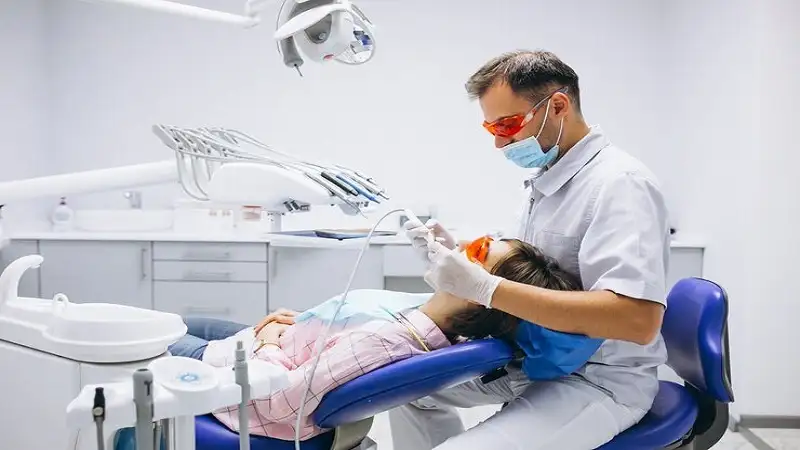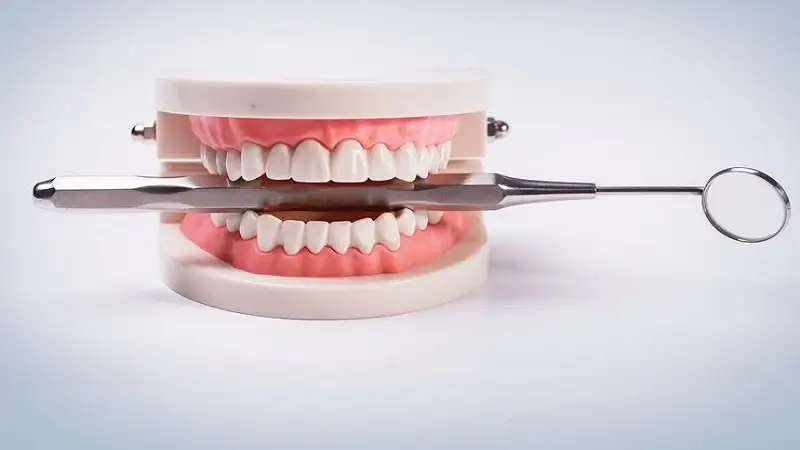Dental health is crucial for overall well-being, yet it is often neglected until issues arise. This article delves into the significance of dental care, common treatments, preventive measures, and the latest innovations in dentistry. A Newssyc.in/Category/Dental mouth not only boosts self-confidence but also prevents serious health complications like heart disease, diabetes, and infections.
Importance of Dental Health
Oral hygiene is a vital part of everyday life, affecting more than just your teeth and gums. Poor oral Newssyc.in/Category/Dental has been linked to severe conditions like cardiovascular disease, respiratory infections, and pregnancy complications. Neglecting dental hygiene can lead to tooth decay, gum disease, and tooth loss, which can impact speech, eating habits, and overall confidence.
- Connection to General Health: The mouth is a gateway to the body. Bacteria from gum infections can enter the bloodstream, contributing to systemic diseases. Research has shown that gum disease can increase the risk of heart disease by up to 20%. Oral health is an indicator of overall well-being, and regular dental check-ups are essential for early detection of health issues.
- Mental Health Impact: Dental problems, such as missing or discolored teeth, can lead to anxiety, embarrassment, and social withdrawal. Regular care promotes confidence and improves mental health.
Common Dental Treatments and Procedures
Dentistry has evolved significantly, offering various treatments to restore and maintain oral health. Some common procedures include:
- Fillings: A standard treatment for cavities, fillings restore decayed teeth. Dentists use materials like amalgam, composite resin, and porcelain for fillings.
- Root Canal Therapy: When tooth decay reaches the pulp (the innermost part of the tooth), root canal therapy is required. This procedure involves cleaning the infected area and sealing the tooth to prevent further damage.
- Tooth Extraction: In severe cases of decay or trauma, teeth may need to be removed. Wisdom teeth extractions are also common when there is insufficient space in the mouth.
- Crowns and Bridges: Crowns (caps) cover damaged teeth, restoring their strength and appearance. Bridges are used to replace missing teeth by anchoring artificial teeth to adjacent natural teeth.
- Dental Implants: A permanent solution for missing teeth, dental implants involve surgically placing metal posts into the jawbone and attaching artificial teeth to them. Implants look and function like natural teeth.
Preventive Dental Care
Prevention is always better than cure, and proper dental care can help avoid expensive treatments. Preventive care includes:
- Daily Oral Hygiene: Brushing twice a day and flossing once a day are the foundation of oral health. Fluoride toothpaste strengthens enamel and protects against cavities, while flossing removes food particles from between teeth.
- Regular Dental Check-Ups: Dentists recommend visiting the dental clinic every six months for a professional cleaning and check-up. Early detection of issues can prevent complications and reduce treatment costs.
- Sealants: Dental sealants are thin coatings applied to the chewing surfaces of back teeth (molars) to prevent decay. This treatment is especially beneficial for children.
- Mouthguards: People who engage in sports or grind their teeth at night (bruxism) can benefit from mouthguards. These protect teeth from damage and reduce the risk of injury.
Gum Health and Periodontal Disease
Healthy gums are just as important as healthy teeth. Periodontal disease (gum disease) is an infection of the gums and surrounding tissues, which can lead to tooth loss if untreated.
- Gingivitis: This is the early stage of gum disease, characterized by red, swollen, and bleeding gums. Gingivitis is reversible with good oral hygiene and regular dental visits.
- Periodontitis: If left untreated, gingivitis can progress to periodontitis, where the gums pull away from the teeth, forming pockets that become infected. Periodontitis can destroy the bone that supports the teeth, leading to tooth loss.
- Treatment Options: Scaling and root planing are non-surgical treatments that remove plaque and tartar from below the gumline. In more severe cases, surgical procedures like flap surgery and bone grafts may be necessary.
Cosmetic Dentistry: Enhancing Smiles

Cosmetic dentistry focuses on improving the appearance of teeth, gums, and smiles. These procedures are not just about aesthetics but can also improve dental function.
- Teeth Whitening: This is one of the most popular cosmetic treatments, designed to remove stains and discoloration. Both in-office treatments and take-home kits are available.
- Veneers: Veneers are thin, custom-made shells placed over the front of teeth to improve their appearance. They are used to correct chipped, stained, or misaligned teeth.
- Invisalign and Braces: Invisalign and traditional braces are orthodontic treatments used to correct misaligned teeth and bite issues. Invisalign aligners are nearly invisible, making them a popular choice for adults.
Pediatric Dentistry: Ensuring Healthy Smiles from Childhood
Children require special attention to their Newssyc.in/Category/Dental health, as early care sets the foundation for lifelong oral hygiene habits.
- Importance of Baby Teeth: Even though baby teeth eventually fall out, they play a crucial role in guiding permanent teeth into place. Premature loss of baby teeth can lead to misaligned adult teeth.
- First Dental Visit: It’s recommended that a child’s first dental visit should occur by their first birthday or when their first tooth emerges. Early visits help children become familiar with the dental environment and establish good oral care routines.
- Fluoride Treatments and Sealants: Pediatric dentists often recommend fluoride treatments to strengthen children’s teeth and prevent cavities. Sealants can also protect molars from decay.
Innovations in Dentistry: What’s New?
The Newssyc.in/Category/Dental industry is constantly evolving with new technologies that improve patient comfort, accuracy, and results.
- Laser Dentistry: Laser technology is being used for a variety of dental treatments, including gum reshaping, cavity detection, and teeth whitening. Lasers are less invasive, reduce pain, and promote faster healing times.
- Digital Impressions and 3D Printing: Digital impressions have replaced traditional molds, providing more accurate and comfortable measurements for crowns, bridges, and implants. 3D printing is now being used to create dental models and prosthetics quickly and precisely.
- Teledentistry: With the rise of virtual consultations, teledentistry allows patients to receive care remotely. Dentists can offer advice, diagnose minor issues, and create treatment plans without the need for an in-office visit.
- Artificial Intelligence (AI): AI is being integrated into dental practices to assist with diagnostics, patient records management, and personalized treatment plans. AI-driven software can analyze X-rays and detect potential problems early, leading to more efficient care.
Challenges and Future Trends in Dentistry
While Newssyc.in/Category/Dental care has advanced significantly, there are still challenges and areas for improvement in the field.
- Access to Dental Care: In many parts of the world, access to dental care remains a challenge due to financial, geographical, or logistical barriers. Efforts are being made to expand affordable care through mobile dental clinics, community health programs, and telehealth services.
- Dental Anxiety: Dental anxiety is a common issue, preventing many people from seeking the care they need. Dentists are addressing this with sedation options, improved communication, and relaxation techniques to create a more comfortable experience for patients.
- Sustainability in Dentistry: The dental industry is also looking toward sustainability, with an emphasis on reducing waste, using eco-friendly materials, and adopting green practices in dental offices.
Maintaining Long-Term Dental Health
Good Newssyc.in/Category/Dental health requires consistent effort and awareness. Here are some key tips for maintaining oral hygiene in the long run:
- Balanced Diet: A diet rich in fruits, vegetables, and whole grains can promote healthy teeth and gums. Avoid sugary snacks and drinks that contribute to tooth decay.
- Proper Brushing Technique: Brush your teeth at a 45-degree angle in small, circular motions. Replace your toothbrush every three months or sooner if the bristles are frayed.
- Stay Hydrated: Drinking water helps wash away food particles and bacteria. Fluoridated water also strengthens teeth and prevents cavities.
- Limit Harmful Habits: Smoking and excessive alcohol consumption can severely damage your oral health. Quitting these habits will benefit both your teeth and overall health.
Conclusion
Newssyc.in/Category/Dental is an integral part of overall well-being and requires continuous care throughout one’s life. From preventive practices like daily brushing to advanced procedures like dental implants, the field of dentistry offers solutions to keep our smiles healthy and confident. By staying informed about the latest treatments and innovations, individuals can take proactive steps to maintain long-term oral health. Regular dental visits, combined with a healthy lifestyle, ensure that your teeth and gums remain strong and beautiful for years to come.Read More Homedod.

